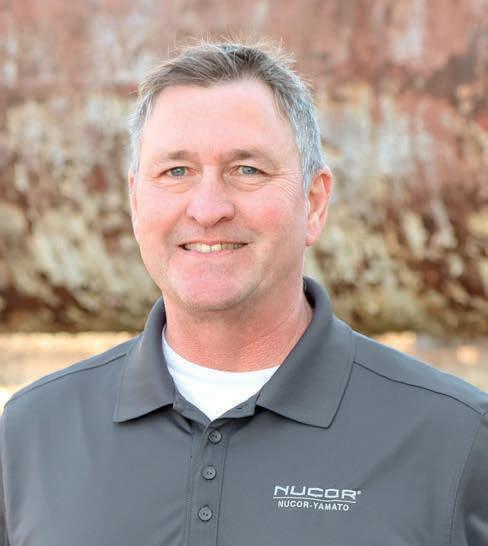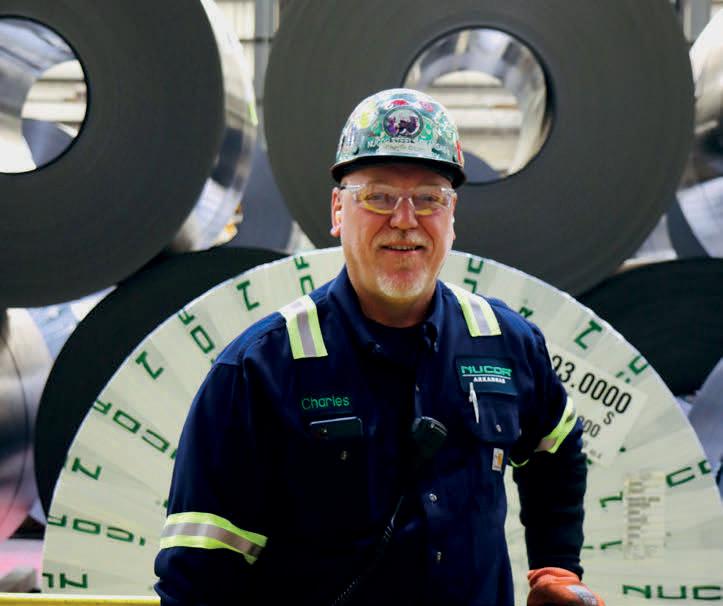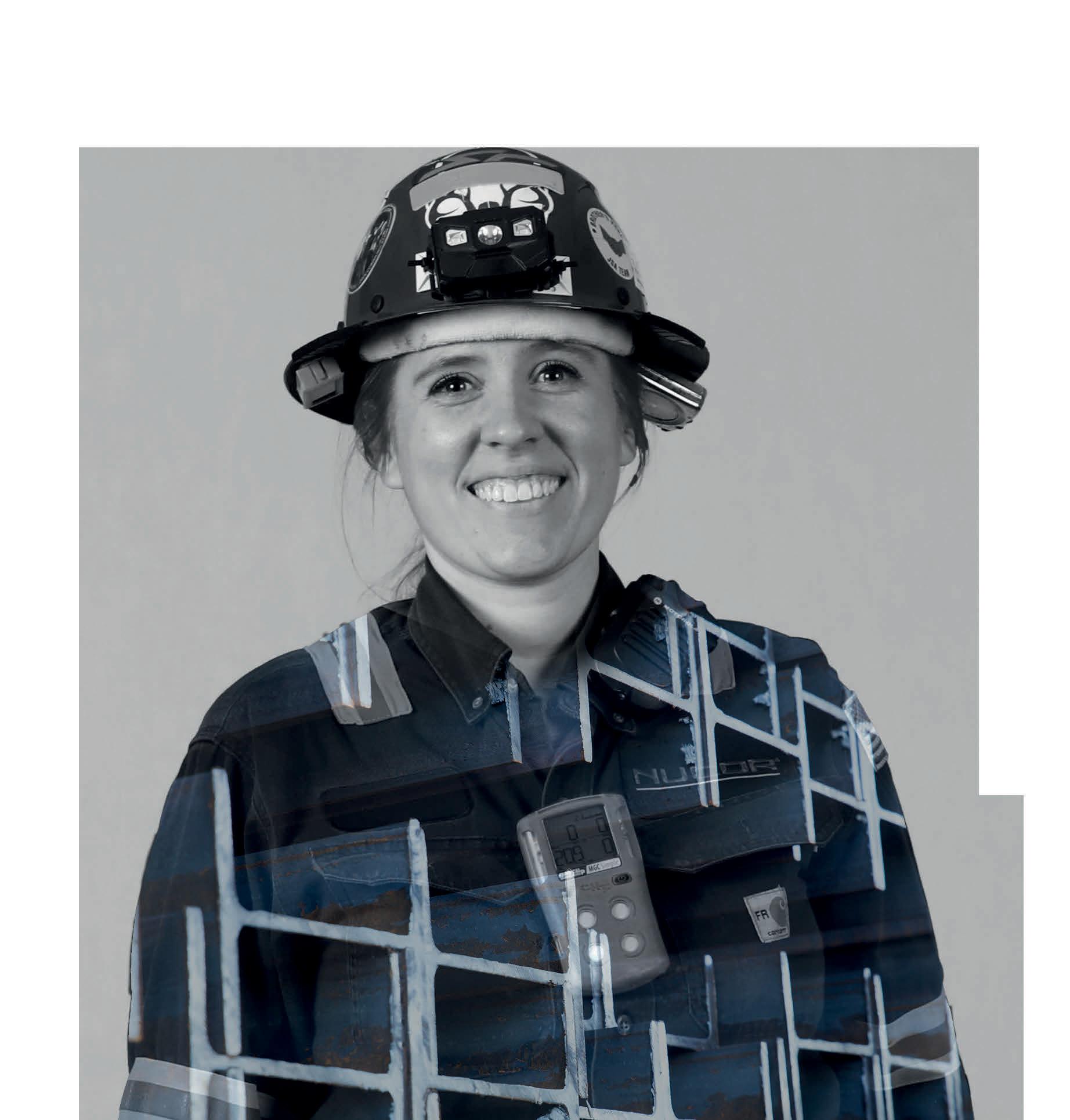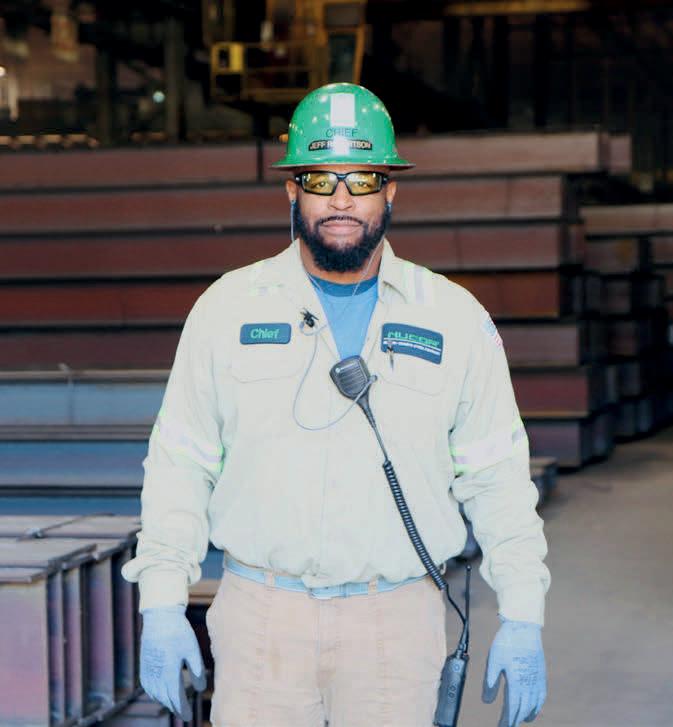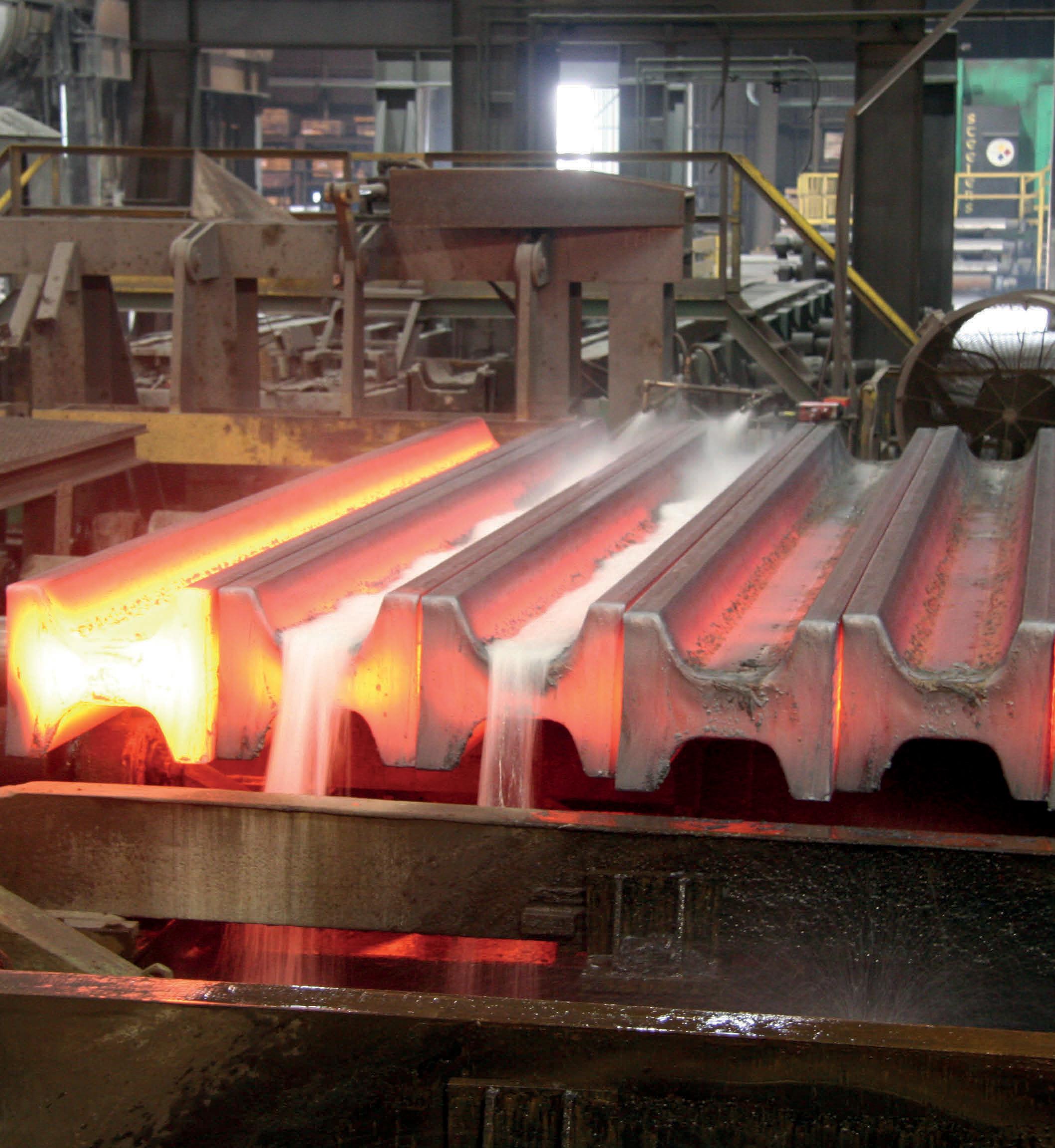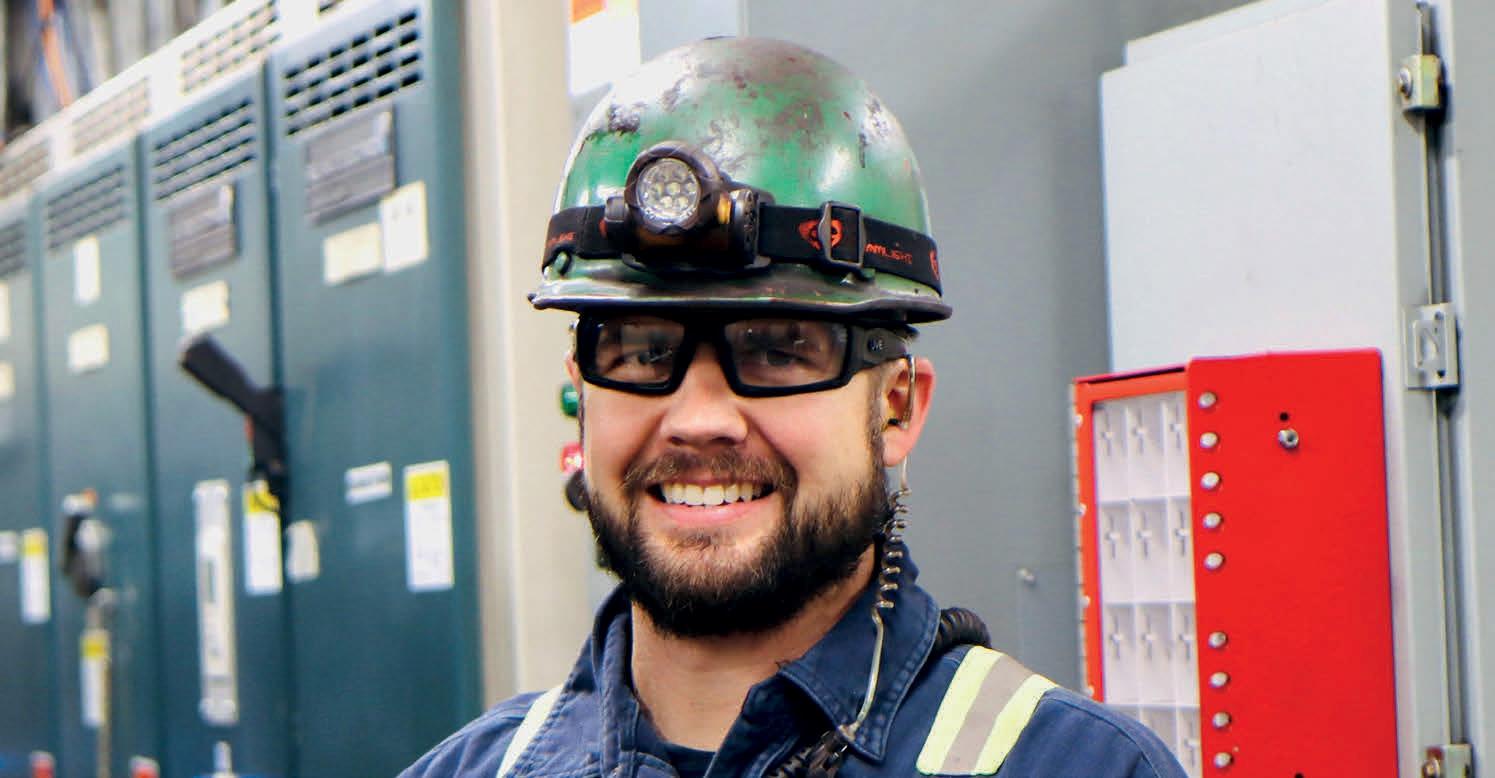2 minute read
TEAMMATE SPOTLIGHT A REVOLUTION IN STEEL
from BluePrint 2023
Next Article
BLUEPRINT: What misconceptions do people, including people in IT, have when it comes to technology and steel mills?
NISHANT VARADACHARI: If you’re looking from the outside, you’re thinking, “Okay this company just makes steel, so it probably doesn’t involve a lot of technology and computers.” That is absolutely wrong!
personal experience, a degree is good and it will be really helpful, but it’s not like you have to have a degree.
NISHANT VARADACHARI
Information Technology Lead/Business Process, Nucor-Yamato Steel
Country of Origin: India
Age: 38
Years with Nucor: 6
This technology was what I was used to seeing in my graduate studies and the places that I worked in California prior to coming to work for Nucor. When you go from school to the workplace and then come to Nucor, you see that the technology here is advanced. If you really have an interest in computer science, yes, you can make a good living at Nucor.
BP: Does it require the kind of college degrees you have in order to find opportunity at Nucor?
NV: Definitely not; there’s a home for pretty much anyone at Nucor. Speaking from
Being in IT in Nucor, you are mostly customer service. We are supporting the teammates out in the mill, because they are the ones who are actually rolling and casting and making the things with steel. So, if you come in with that mentality, there’s a place for you here.
BP: There’s a big focus on diversity across the board in workplaces, something IT has traditionally lacked. What’s the Nucor workplace like in terms of diversity?
NV: We have men and women from all different ethnicities. NYS’ IT department consist of 16-17 people; consisting of males and females, older and younger, as well as different ethnicities; everybody is really happy working, getting along. And, if you go around in the mill, it’s a pretty diverse environment out there as well.
Katie Behrendt
Sales Metallurgist, Nucor Steel Arkansas
Hometown: Waukesha, WI
Age: 36
Years with Nucor: 3 lot of math and science, and I wouldn’t want anyone to think that they can avoid that, but I don’t think that’s required to become an engineer or a technological leader. I think it’s really just curiosity; it’s liking to take things apart and put them back together, it’s wanting to understand how things work. If people have that mindset, if they just have the curiosity and desire to understand, we can work with people and give them the technical part.
BLUEPRINT: What does a sales metallurgist do?
KATIE BEHRENDT: I’m part of Nucor’s tech services group. I help our sales team and our customers who have new inquiries for the mill, asking if we can make this or that. I help ensure we understand what they need and that we’re giving them what they need. And then, if they have issues, of course I’ll get involved as well.
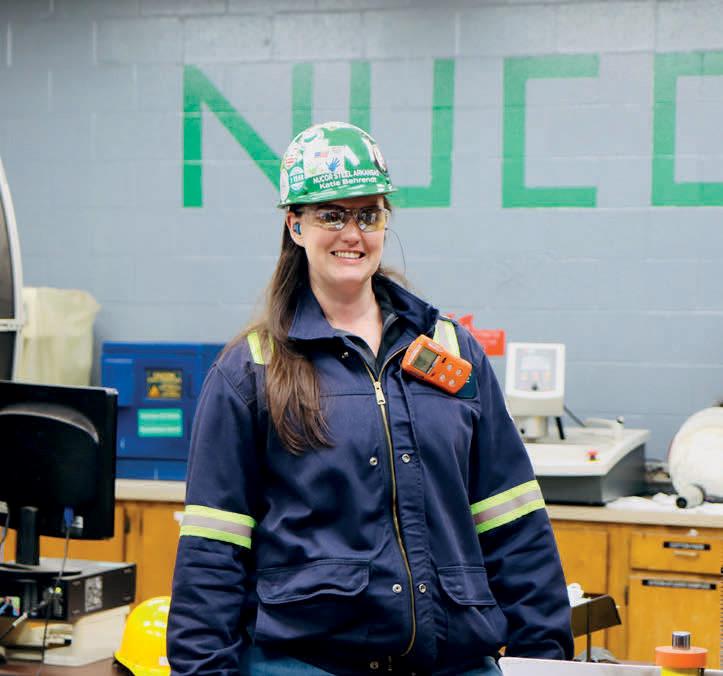
BP: Did you come to Nucor straight from college?
KB: Right before here I was at a U.S. Steel mill outside of Detroit. Right out of college I started in a wire mill in Milwaukee, and I was there for eight years.
BP: What is something about this job that might surprise someone?
BP: What’s one characteristic that’s essential in this field?
KB: Being someone who asks, “Why? Why does this happen?” and then asking, “Why not? Why can’t we do it differently? Why can’t we do it better?” Those are really the people we’re looking for.
DISCOVER THE OPPORTUNITIES • MAKE THE TEAM
KB: I think that a lot of people have this view that being an engineer or getting into a technological field starts with being really good in math and science. We definitely use a
LEARN YOUR TRADE • BUILD YOUR CAREER
BLUREPRINT: You have a degree in computer science which can be applied in a lot of places. Why work at Nucor?
BP: What opportunities are in your department for someone without a four-year degree?



